|
Contens |
Lessons |
Units & Topics |
Grammar |
Vocabulary |
Reading / Listening |
Speaking / Writing | |
|
Unit 1 – Starting off | 1A | 1–3 | Welcome | Tense review: Present Simple, Present Continuous, Present Perfect, Past Simple | Introducing yourself | L: A new student R: Tom’s web page | S: Social networking |
| 1B | 4–6 | Nice to meet you |
| Greetings Personal information Saying phone numbers | L: Nice to meet you R: Tips when making a contact with an unfamiliar person | S: Giving personal information | |
| 1C | 7–8 | Classroom language |
| Classroom language phrases | L: “Do as I say, not as I do” | W: Creating classroom language dialogue. W: “Creating Flashcards” project | |
|
Unit 2 – School life | 2A | 9–11 | School subjects | Present Simple Object pronouns | School subjects Pronunciation: Word stress: School subjects Expressing likes and dislikes | R: Schools around the world | S: Finding out something in common |
| 2B | 12–14 | Types of schools | Present Simple | Collocations with school Pronunciation [Λ] or [ju:] | R: Schools in the U.S. | S: Comparison between the education system of the USA and Kyrgyzstan W: Making a lapbook about the education in Kyrgyzstan or any other country | |
| 2C | 15–17 | School objects | have / have got | School objects | R: History of some school objects | S: Have you got a book with you? | |
| 2D | 18–19 | Are you successful in language learning? | so / such | Words related to language learning | R: Are you successful in language learning? | S: Discussing quotations about language learning W: Make up a poster “Tips for a successful language learner” | |
|
| 20–21 | Progress Check 1: Units 1–2 | |||||
|
Contens |
Lessons |
Units & Topics |
Grammar |
Vocabulary |
Reading / Listening |
Speaking / Writing | |
|
Unit 3 – My network | 3A | 22–24 | My family | Possessive case ‘s Possessive adjectives Possessive pronouns | Words related to family values Pronunciation: [Λ] sound | R: Family values | S: Talking about your family and family values W: Writing about your family values |
| 3B | 25–26 | My friends | Present Simple (+) (–) Pronunciation: third person -s Spelling rules | Describing a friend Phrases of relationship | R: My best friend | S: Talking about your best friend W: Writing about your best friend | |
| 3C | 27–29 | Spending time with a family or friends? | Present Simple (?) | Free time activities | R: Do you spend more time with your family or your friends? | S: Finding out who you spend more time, with your family or your friends | |
|
Unit 3 | 3D | 30–31 | Spending Time | Revision of the Present Simple Tense. | Every day activities Collocations with wash, play, brush, take and wait for Pronunciation of words |
| W: Describing the pictures. S: Speculating about a partner’s every day activities |
|
Unit 4 – Likes and Dislikes | 4A | 32–33 | Yes, I love it! | Love, like, hate, don’t mind + plural or verb -ing Spelling rules | Phrases of likes and dislikes Types of activities | R / L: What do Aigul’s friends like? | S: Interviewing a partner about likes and dislikes W: Describing the pictures |
| 4B | 34–35 | It’s a big, big world | Adverbs of frequency | Words related to different traditions | R: Different types of behavior in different countries | S: Talking about traditions in different countries S / W: Guessing the partner’s habits. W: “My family traditions” project | |
| 4C | 36–37 | Guinness Book | Question words Word order in questions Pronunciation: Intonation in special questions | Question words | R: Aigul’s book of class records | S: Discussing Aigul’s friends’ habits. S: “What is the question?” board game | |
| 4D | 38–39 | When in Rome, do as the Romans do | Direct / Indirect object Verb patterns: verbs with two objects | Words related to customs and etiquette | R: Some common etiquette and customs in different countries | S: Discussing customs and etiquette rules of different countries | |
|
|
| 40–41 | Progress Check 2: Units 3–4 | ||||
|
|
| 42 | Test 1 for the first quarter | ||||
|
Contens |
Lessons |
Units & Topics |
Grammar |
Vocabulary |
Reading / Listening |
Speaking / Writing | |
|
Unit 5 – Geography | 5A | 43–44 | Geographical features | Definite article the and zero article with geographical features | Geographical features Pronunciation: word stress | R: Dialogue between Aigul and Tom about geography | W: Gap filling |
| 5B | 45–46 | Our Motherland | Definite article the and zero article with the names of countries, cities and people | Names of continent, countries and cities | R: Kyrgyzstan | S: Describing pictures. W: Paragraph about any country | |
| 5C | 47–48 | World’s largest walnut forest | Articles a / an and the Generalization | Names of geographical features, berries and nuts | R: Arslanbob | S: Answering the questions about the text | |
| 5D | 49–51 | Trip to the United Kingdom of Great Britain and Northern Ireland | Articles a / an, the and zero article (–) with superlative adjectives, meals, nationalities and description of nouns | Words connected with geography | R: Trip to the United Kingdom of Great Britain and Northern Ireland | S: Answering the questions about the text | |
|
Unit 6 – Legends in our life | 6A | 52–53 | What’s in a name? | Past simple (+) with regular and irregular verbs Pronunciation: regular verbs endings | Regular and irregular verbs | R: What’s in a name? R: Legend about Aigul | S: Talking about names W: Spelling rules. S: Talking about your last weekend |
| 6B | 54–55 | Our strength is in our unity | Past Simple (–) regular and irregular verbs | Words related to the text | R: Fairy tale | S: Chain story | |
| 6C | 56–57 | A legend about Kochkor | Past Simple: general and special questions Intonation in questions and answers | Words related to the text | R: A legend about Kochkor | S: Legends about the places in Kyrgyzstan | |
| 6D | 58–60 | A legend about Issyk-Kul Lake | Adjectives ending in -ed or -ing | Words related to the text | R: A legend about Issyk-Kul Lake | S: Asking a partner how s / he is feeling; describing things | |
|
|
|
61–62 |
Progress Check 3: Units 5–6 | ||||
the World
|
Contens |
Lessons |
Units & Topics |
Grammar |
Vocabulary |
Reading / Listening |
Speaking / Writing | |
|
Unit 7 – Question of Fashion | 7A | 63–64 | Clothes make the man | Very + adjective and too + adjective Word order of adjectives | Items of clothing Design and materials | R: Interview with a Scottish boy | S: Answering the questions from the text W: What are Tom and Aigul wearing? |
| 7B | 65–66 | Ak kalpak | Revision of irregular verbs Pronunciation of some irregular verbs | Vocabulary from the text | R: Ak kalpak | S: History of Kyrgyz traditional hat S: Sayings about Ak kalpak W: “Traditional clothes” project | |
| 7C | 67–68 | Jeans or dress? | Comparative form of adjectives | Revision of items of clothing | R: Dialogue “Jeans or dress?” | S: Answering the questions about clothes W: Comparing things S / W: My family W: adjectives crossword | |
| 7D | 69–70 | The most Unusual | Superlative degree of adjectives | Revision of adjectives | R: The most unusual clothes | S: Speculating about the pictures S: “Superlatives” board game W: grammar dictation | |
| Unit 8 – Holidays around the World | 8A | 71–72 | Thanksgiving |
| Vocabulary connected to the reading text | R: The history of Thanksgiving | S: How much do you know about Thanksgiving? W: “Traditional holiday in KG” project work |
| 8B | 73–74 | New Year around the World |
| Collocations connected to celebration | R: Traditions around the world | S: New Year celebration in Kyrgyzstan S: Describing the pictures | |
| Unit 8 – Holidays around | 8C | 75–76 | Make or do? | Collocations with make and do | Collocations with make and do Pronunciation: collocations |
| S: Talking about traditions at home W: Changing the sentences S: “Make or Do?” board game |
| 8D | 77–79 | What were you doing at 5 o’clock? | Past Continuous (+), (–), (?) | Everyday activities | R: “One day from the past” | S: What were you doing at… ? | |
|
| 80–81 | Progress Check 4: Units 7–8 | |||||
|
| 82 | Test 2 for the second quarter | |||||
|
Contens |
Lessons |
Units & Topics |
Grammar |
Vocabulary |
Reading / Listening |
Speaking / Writing | |
|
Unit 9 – Gadget | 9A | 83–84 | Computing |
| Parts of a computer Defining the words | R: Reading and matching the words with the definitions | W: Gap filling |
| 9B | 85–86 | Gadgets | Can for possibility Pronunciation: strong and weak forms of can | Names of gadgets | R: Gadgets | S: Talking about gadgets S: Making a presentation on “My dream school” S / W: Unusual use of objects | |
| 9C | 87–88 | Internet Safety | Imperative sentences (+) and (–) | Vocabulary connected to the Internet safety | R: How to be safe online | S: What do you know about the Internet safety? | |
| 9D | 89–90 | One day without my gadget | Zero conditional |
| R: My favourite gadget | W: “Sentence halves” | |
|
Unit 10 – Ecology | 10A | 91–92 | Ecology | Word formation: suffixation | Ecological problems | R: Ecology lesson | S: Talking about ecology W: How to save ecology in your city |
| 10B | 93–94 | Three R’s Rule | Will for unplanned actions in future | Vocabulary related to ecology | R: Reduce, reuse, recycle | S: Talking about ecology W: Describing the possible results for the ecological situations | |
| 10C | 95–96 | Weather | Word formation: noun – adjective | Seasons, months, weather Pronunciation: [ɒ], [əʊ] | R: Weather in Kyrgyzstan | W: Describing weather in different parts of Kyrgyzstan | |
| 10D | 97–98 | What Will Our Future Be Like? | May, might, will, definitely /probably, etc., for making predictions | May, might, will, definitely / probably Pronunciation [əu] / [ɔ] | R: Ecological situation at Issyk-Kul | S / W: “In the next 50 years… ” project | |
|
|
| 99–100 | Progress Check 5: Units 9–10 | ||||
|
Contens |
Lessons |
Units & Topics |
Grammar |
Vocabulary |
Reading / Listening |
Speaking / Writing | |
|
Unit 11 – Agriculture | 11A | 101–102 | What is agriculture? | Infinitive of purpose | Pronunciation: [ei], [a:], [ʊ], [ɒ], [ʌ]. | R: What is agriculture? | S: Talking about agriculture and farming |
| 11B | 103–104 | From the farm to your table | Linkers: first, second, next, finally | Vegetables Pronunciation: consonant sounds. Parts of plants | R: Biology homework | S: Describing pictures | |
| 11C | 105–106 | Farm Animals | Plural forms of nouns | Farm animals and their babies Pronunciation: [i], [əʊ], [ɒ] | R: Animal facts | S: Talking about farm animals | |
| 11D | 107–108 | My future hopes and plans | Going to, want, hope, would like to for future planning and hopes Pronunciation: going to | Vocabulary connected to the text | R: Future hopes and plans | S: Talking about teenagers’ hopes and plans | |
|
Unit 12 – Going Shopping | 12A | 109–111 | Containers | How much / how many? A lot (of), quite a lot (of), much / many, any, not much / many, none | Names of containers Pronunciation: [əʊ], [i:], [ɒ], [ai], [ʌ], [a:] | R: Animal facts | S: Talking about farm animals |
| 12B | 112–114 | At the market | Like vs would like Pronunciation: would you [‘wuʤə] | Useful phrases for going shopping Making invitations Accepting /Refusal of invitations | R: Future hopes and plans | S: Talking about teenagers’ hopes and plans | |
| 12C | 115–117 | At the Clothes Shop | Will for spontaneous decisions | Useful phrases for shopping for clothes | L: Dialogue in the clothes shop R: Street markets around the world | S: Role playing the dialogue S: Talking about markets | |
| 12D | 118–120 | A little more shopping | Determiners: few, a few, little, a little, much, many | Collocations for shopping Pronunciation: [juː], [t] | R: Dialogues: planning to go to the souvenir shops and shopping in the supermarket | S: Quantifier race | |
|
Contens |
Lessons |
Units & Topics |
Grammar |
Vocabulary |
Reading / Listening |
Speaking / Writing | |
|
Unit 13 – Know about Future | 13A | 121–122 | Weather Omens | If-clause to talk about future predictions (1st Conditional) | Vocabulary related to the text | R: What will the weather be like tomorrow? | S: Talking about weather omens |
| 13B | 123–124 | Safety tips for teens | If-clause + imperatives to talk about future recommendations and advice | Vocabulary related to bullying and safety | R: Safety with strangers R: Safety at school | S: Giving advice to teens W: Tips for safety at home | |
| 13C | 125–126 | I can do it myself! | Subject / object pronouns: revision Reflexive pronouns Each other | Sport: martial arts Reflexive pronouns: myself, yourself, etc. Each other | R: “Going for sport” dialogue | S: “Every girl must defend herself” opinion gap | |
| 13D | 127–128 | Take Care | First conditional: revision | Accidents: cut yourself, bruise, burn yourself, twist an ankle, etc. | R: “First aid” L / R: “Doctor’s recommendations” | S: “Giving advice” | |
|
|
| 129–130 | Progress Check 6: Units 11–13 | ||||
|
|
| 131 | Test 3 for the thitd quarter | ||||
|
Unit 14 – Chores | 14A | 132–134 | Household Chores | Present Continuous (+), (–), (?) Pronunciation: [ŋ] | Revision of the household activities | R: What season is it? | S: Interviewing a partner W: -ing forms spelling rules W: Describing the picture |
| 14B | 135–137 | Family Chores and Holidays | Present Simple vs Present Continuous Time phrases Indefinite pronouns: somebody / someone, something, somewhere, anybody /anyone, anything and anywhere | Verb-noun collocations Pronunciation: [ei], [e], [əʊ], [ɔ:] | R: Tom and his family R: Who is it? | S: Interviewing a partner S: Describing the pictures W: Writing a paragraph about what you usually do and what you’re doing now | |
| 14C | 138–140 | Being away from chores | Present Simple vs Present Continuous Stative verbs Indefinite pronouns: everybody / everyone, everything, everywhere, nobody / no one, nothing, nowhere | Stative verbs Vocabulary related to holiday | R: Holiday in Turkey R: Holiday in Osh | S: Interviewing a partner S: talking about family members’ un / usual habits W: writing a story /fairy tale using indefinite pronouns | |
| 14D | 141–142 | Let’s keep our school clean | Present Continuous for future arrangement | Time expressions for future arrangement | R: Dialogue between Aigul and her friend | S: Asking and answering about your classmate S: Arranging a meeting | |
|
Contens |
Lessons |
Units & Topics |
Grammar |
Vocabulary |
Reading / Listening |
Speaking / Writing | |
|
Unit 15 – Experience | 15A | 143–144 | Types of Holiday |
| Different types of holiday Adjectives describing holidays Giving definitions Useful phrases: discussing, asking and telling people about holidays | R: Asking and telling about holidays | S: Talking about holiday experience S: Planning your dream holiday |
| 15B | 145–146 | Travel Experiences | Present Perfect (+), (?) and (–) with I / you / we / they and the verb “to be” Pronunciation: sentence stress | Types of holidays: revision Been vs gone | L / R: Nicolas and Kelly’s travel experiences | W: Sentences with contractions W: Making up sentences | |
| 15C | 147–148 | Life Experiences | Present Perfect with irregular verbs Present Perfect and Past Simple with for Pronunciation: contractions and weak forms | Past Participles of irregular verbs Pronunciation: irregular verbs chants |
| S: Interviewing a partner about the experiences W: Writing about your experiences | |
| 15D | 149–150 | He has done it! | Present Perfect (+), (–) and (?) with regular and irregular verbs for the 3rd person singular | Past participles of regular and irregular verbs | R: Reading the postcard | W: Making up (+), (–) and (?) forms in the Present Perfect | |
|
|
| 151–152 | Progress Check 7: Units 14–15 | ||||
|
Rules rule the world | 16A | 153–154 | School Rules | Must and mustn’t Pronunciation: silent t | Revision of the instructional language |
| S: Describing a picture W: Making up the rules for your English class |
| 16B | 155-156 | Cultural Rules | Have to / has to | Vocabulary related to customs. | L: Dialogue about customs. | S: Things you have to do over a week. | |
| 16C | 157-158 | Kyrgyz tradition: Beshik toi | Present Simple Passive | Vocabulary related to traditions | R: Beshik toi | S: Discussing traditions and customs W: Writing riddles | |
| 16D | 159-161 | Kyrgyz tradition: Tushoo kesuu | Defining relative clause | Vocabulary related to traditions | R: Tushoo kesuu | W: Writing definitions | |
|
Contens |
Lessons |
Units & Topics |
Grammar |
Vocabulary |
Reading / Listening |
Speaking / Writing | |
|
Revision |
17A |
162–163 | Fables | Past Simple: revision Verbs + prepositions | Vocabulary related to the fable Verbs + prepositions | R: The fox and the Goat | W: The Lion and the Mouse; S: Moral of the fable; S: Retelling the fable W: Writing a paragraph about a partner. |
|
17B |
164–165 | Let’s Talk! | First and zero conditional: revision Present Perfect: revision Degrees of adjectives: revision | Revision of the adjectives Activating vocabulary |
| S: Board game on conditional sentences W / S: Degrees of adjectives | |
|
17C |
166–167 | Do you remember? | Revision of all grammar from the book | Vocabulary from the student’s book |
| W / S: Alphabet Race S: “All the language in the student book” board game | |
|
|
| 168–169 | Progress Check 8: Units 16–17 | ||||
|
|
| 170 | Test 4 for the fourth quarter | ||||

 Получите свидетельство
Получите свидетельство Вход
Вход



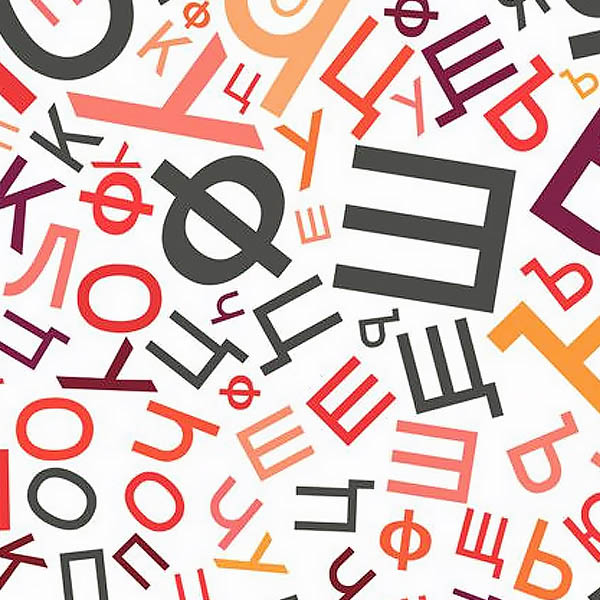
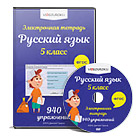
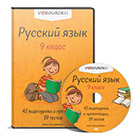
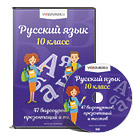
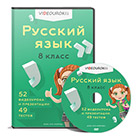
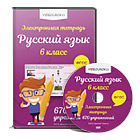
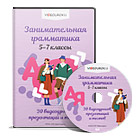
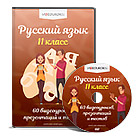
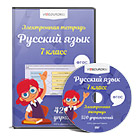
 Календарно - тематическое планирование по русскому языку 6 класс (42.58 KB)
Календарно - тематическое планирование по русскому языку 6 класс (42.58 KB)
 0
0 92
92 1
1 Нравится
0
Нравится
0


